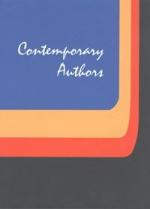|
This section contains 1,801 words (approx. 7 pages at 300 words per page) |

|
[In] Frye's work the disinterested philosophy of aesthetic literary criticism and the socially conscious philosophy of humanistic criticism threaten to meet head-on as irresistible force and immovable object. Frye himself recognizes this antithesis. It is dealt with explicitly and self-consciously at several points in his criticism, and it is ultimately resolved in something like a mature and willing resignation. That is, Frye seems to conclude that the paradox is inevitable. Moreover, he concludes that the fundamental dualism of literature as both a disinterested art and a product of the engaged human imagination, makes it impossible for criticism to be perfectly consistent. But to be so it must become a hybrid of two distinct and apparently antithetical mental attitudes. (p. 256)
For Frye, criticism must see that the freedom and autonomy of the artistic imagination is absolute; it must view the product of that imagination as a phenomenon possessing an...
|
This section contains 1,801 words (approx. 7 pages at 300 words per page) |

|


